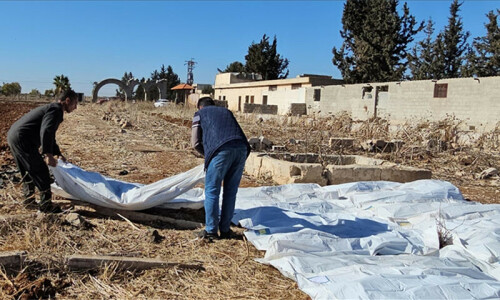KARACHI: The local bus assemblers are operating at less than three per cent of their installed production capacity since almost all provincial governments are importing major chunk of vehicles for their mass transport projects.
Pakistan Association of Automotive Parts and Accessories Manufacturers (PAAPAM) Chairman Usman Aslam Malik on Saturday said that Hinopak Motors, Gandhara Nissan, Gandhara Industries, Afzal Motors, Daewoo Pak Motors, Tayyaba Motors and Fuso Motors produced only 630 buses against their total capacity of 26,150 units during July 2013 to March 2014.
Quoting latest data of Engineering Development Board (EDB) he said Hinopak Motors, which has annual production capacity of 5,950 units, produced only 372 buses of all ranges and ranked first in the country.
Gandhara Nissan produced just six units of Nissan SP 210 Bus against capacity of 4,200 units, while Gandhara Industries assembled only 17 units of Isuzu NPR 66PB Bus and Isuzu MT133 Bus against the capacity of 3,000 units.
Master Motor Corporation Karachi can roll out 8,500 buses in one year but it could assemble only 13 buses of Master Yuejin and Master Mitsubishi models in the period under review.
Afzal Motors can assemble 3,000 busses but it could show production of just 10 buses. Only the Daewoo Pak Motors could succeed to utilise production capacity a little better as it manufactured 180 buses out of 500 capacity.
Fuso Master Motors, having capacity of producing 1000 busses, could not manufacture a single bus this fiscal year so far.
The PAAPAM chief said though Punjab government had launched rapid bus service in provincial capital besides initiating more such projects in other cities, the authorities have imported all buses for those projects.
All local manufacturers are producing high quality and state-of-the-art buses but Punjab government preferred to import buses them from China and Turkey.
If the Punjab government procures vehicles locally, every assembler will create jobs for at least 100 people directly.
The Lahore Transport Company imported 300 buses last year. Import process takes at least five months and local companies could also produce those 300 buses within this period.
He said the so-called state-of-the-art imported buses developed problems including air-conditioning and cooling system failure, while many broke down due to heating up in just a month’s time of inauguration of Metro Service.
He pointed out that the computerised system in some buses also crashed in and foreign experts had to be called in.
Usman urged all provincial governments to stop importing buses and should devise policies that can encourage local production of these vehicles.
He said that all bus assemblers were using at least 65 per cent local components leading to the high growth and employment generation in auto parts industry too.














































Dear visitor, the comments section is undergoing an overhaul and will return soon.